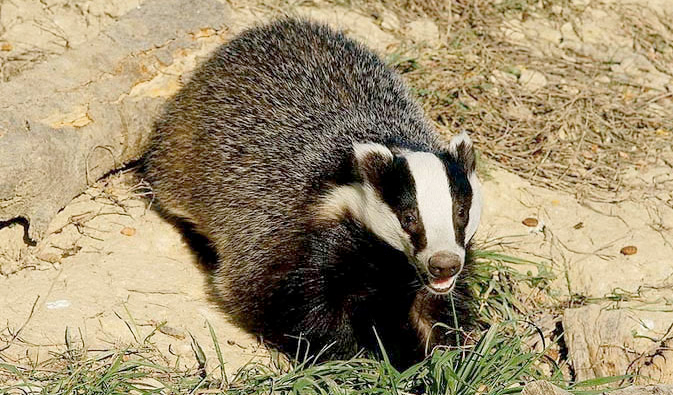
The government has recently announced the scale of a new round of badger culling as the central plank of its anti-bovine TB campaign.
Bovine TB costs taxpayers £100m each year. It is a significant threat to the future of our beef and dairy industries, directly affecting one in five of all herds in the worst affected parts of the country.
Farming Minister George Eustice said: "England has the highest incidence of TB in Europe and that is why we are taking strong action to deliver our 25-year strategy to eradicate the disease and protect the future of our dairy and beef industries.
"This includes strengthening cattle testing and movement controls, vaccinating badgers in the buffer zone around high-risk areas, and culling badgers where the disease is rife.
"Our approach of dealing with the disease in cattle and wildlife has worked overseas and is supported by leading vets."
Chief Vet Nigel Gibbens said: "Controlling bovine TB is vital for our beef and dairy industries. These proposals to further strengthen testing in the low risk areas will provide additional protection to farmers in those areas, helping them to stay disease free.
"Maintaining strong cattle disease control measures, combined with culling wildlife where the disease is most prevalent, will help us to achieve further disease reduction on farms suffering from TB in the high risk areas."
In West Somerset a maximum of 524 badgers can be killed over the coming months under government licence. The figure for West Gloucestershire is 679. In Dorset, which was not part of the sanctioned slaughter last year, as many as 835 can be destroyed.
As part of our measured approach to tackling bovine TB and achieving disease control benefits Natural England has authorised targeted badger culls in Gloucestershire, Somerset and Dorset this year.
Under the Government’s long-term strategy to eradicate bovine TB, Defra has already introduced tougher movement controls, more frequent testing and is supporting badger vaccination schemes in the “Edge area”, a buffer zone established to contain the spread of the disease.
It is currently ‘calling for views' on the merits of killing these animals as a further step to bovine TB control.
Says Animal Aid Director, Andrew Tyler: "Since 1975, more than 30,000 badgers have been killed in failed government attempts to control bovine TB, yet tests revealed that 80 per cent of the slaughtered animals were free of the disease.
"Equally disturbing is the failure to acknowledge the key role that intensive farming methods play in the TB crisis.
"Commercial cows are selectively bred for unnatural levels of milk production; they are fed an almost indigestible high protein diet; they are increasingly confined in units that allow them rare forays into the fresh air; and their newborn calves are frequently taken from them.
"These appalling strains lead not just to a high incidence of bovine TB, but also to a range of devastating conditions whose economic impact far outweigh that of TB itself. 90,000 cattle are culled annually due to mastitis, 31,000 due to lameness, and 125,000 as a result of reproductive failure."
Effective measures to reduce or even eradicate bovine TB from farms first of all require the elimination of intensive farming methods.
Research also shows that where hedges and ungrazed strips of land are left on a farm, incidence drops.
Cattle with an adequate mineral intake are also less susceptible to the disease. Providing mineral licks or enriching the soil - depleted by intensive farming and fertiliser use - has resulted in many farms remaining bovine TB-free, despite those around them succumbing.
DEFRA is also seeking views on changes to the rules on cattle testing, the criteria for areas seeking a badger control licence and the right approach to controlling TB in non-bovine animals.
CLA Director of Policy and Advice, Christopher Price said: “Controlling the badger population is a vital part of the Government’s comprehensive 25-year strategy for controlling bovine TB. We strongly support the decision to licence the culling of badgers in these three areas.
“Farmers in Somerset, Gloucestershire and Dorset are living through a nightmare and we must do all we can to support them and prevent the spread of this terrible disease.
“We will support all measures that are necessary to deliver the strategy, and will respond constructively to the important questions raised in the consultations published.”
